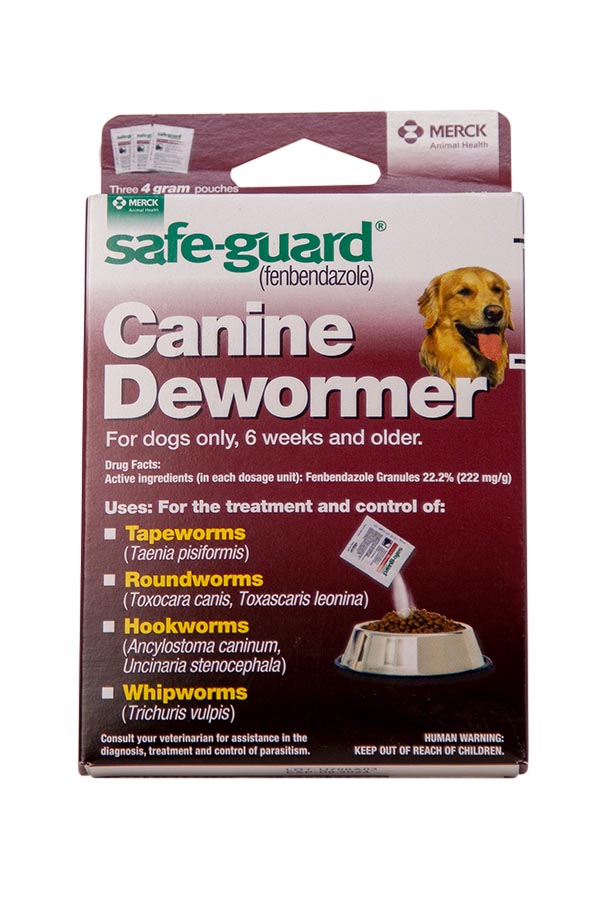Fenbendazole for Dogs: Usage and Side Effects
It can be unsettling to hear that your dog has worms, but fenbendazole is a commonly used medication that helps eliminate parasites in dogs.
It can be unsettling to hear that your dog has worms, but fenbendazole is a commonly used medication that helps eliminate parasites in dogs.
Fenbendazole (brand names Panacur® and Safe-Guard®) is an antiparasitic medication used to treat various worms, including roundworms, hookworms, whipworms, and certain tapeworms in animals. It belongs to the benzimidazole class, which works by destabilizing the microtubules that are essential to the parasite’s cell structure. Other benzimidazoles include albendazole, parbendazole, mebendazole, and flubendazole.
According to the American Kennel Club, “fenbendazole kills parasites by binding to tubulin (a type of protein), which interferes with the parasites’ ability to form microtubules.”
Fenbendazole is a benzimidazole, a class of microtubule-destabilizing agents. Other benzimidazoles, including albendazole, parbendazole, mebendazole and flubendazole.

Fenbendazole is typically recommended for healthy dogs aged six weeks and older. It is available in oral granules or liquid suspension. When using the liquid form, carefully measure the dosage.
Dosage Guidelines:
Storage:
Store fenbendazole in a tightly closed container at room temperature.
 Fenbendazole Side Effects in Dogs
Fenbendazole Side Effects in Dogs
Side effects from fenbendazole are rare but may include gastrointestinal issues such as:
Some formulations, such as Panacur Plus, contain additional medications (like ivermectin or praziquantel), which might have more severe side effects.
Allergic Reactions:
In rare cases, as the parasites die, some dogs might experience an allergic reaction. Symptoms can include:
If any of these symptoms occur, contact your veterinarian immediately.
There are no known significant drug interactions when using fenbendazole for dogs. However, always inform your veterinarian of any other medications, vitamins, or supplements your dog is taking to ensure safety.
Disclaimer:
The Joe Tippens Protocol is an anecdotal account of one individual’s experience with an unconventional health approach. This information is shared for educational and informational purposes only and should not be interpreted as an endorsement, recommendation, or guarantee of results. The safety and efficacy of the protocol, including its use of fenbendazole or any other components, have not been thoroughly evaluated or approved by the U.S. Food and Drug Administration (FDA) for the treatment of cancer or any other medical condition.
Additionally, CBD products are not approved by the FDA to diagnose, treat, cure, or prevent any disease. The FDA advises that all claims about CBD or any other supplements be substantiated by rigorous clinical studies and evidence. Consumers are urged to exercise caution when considering unconventional methods and to consult with a licensed healthcare professional before beginning any new treatment or supplement regimen.
Always rely on evidence-based medicine and the guidance of qualified medical experts when making decisions regarding your health.